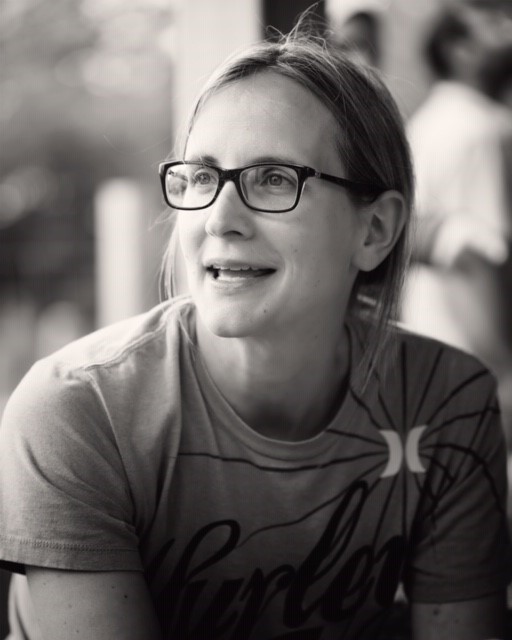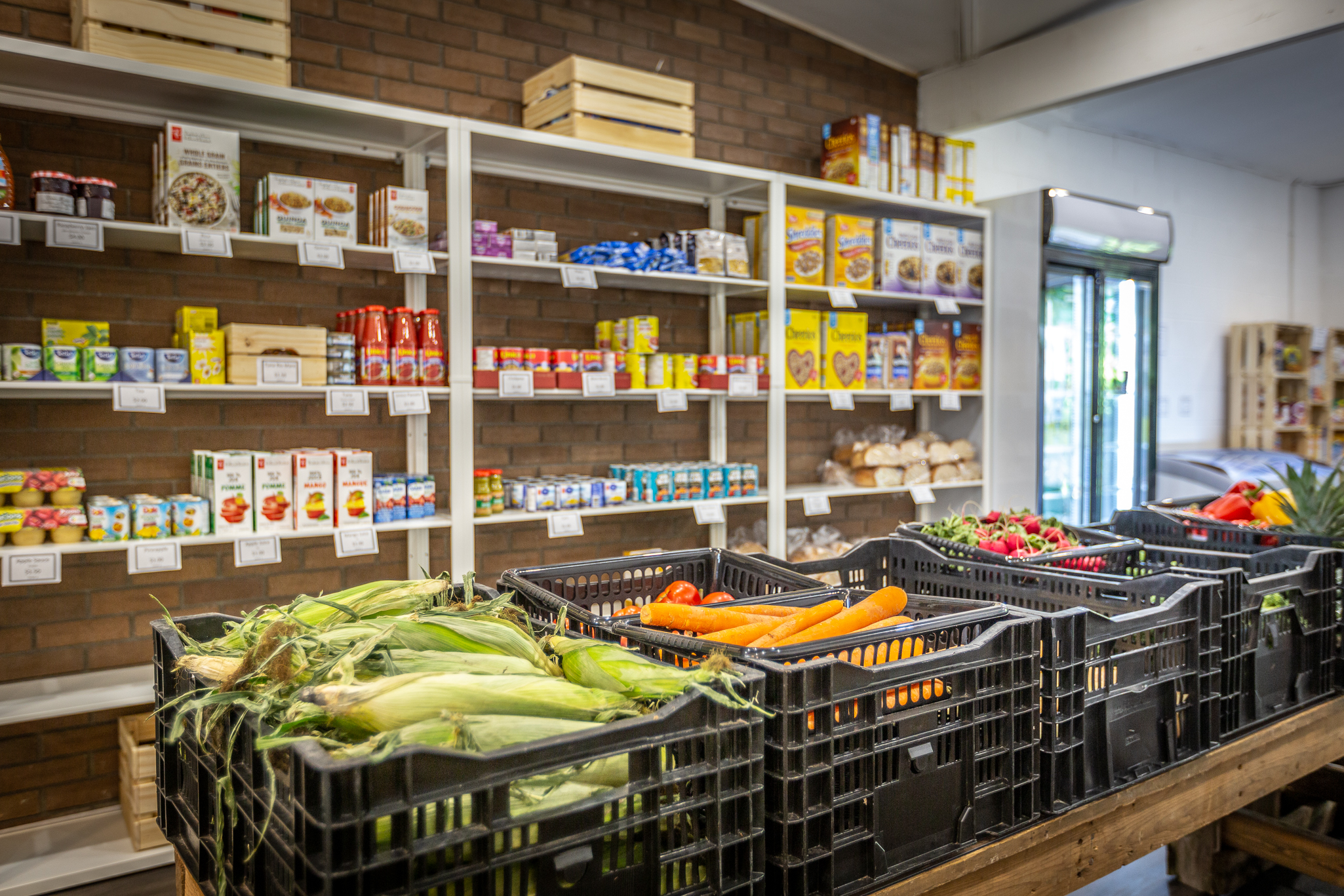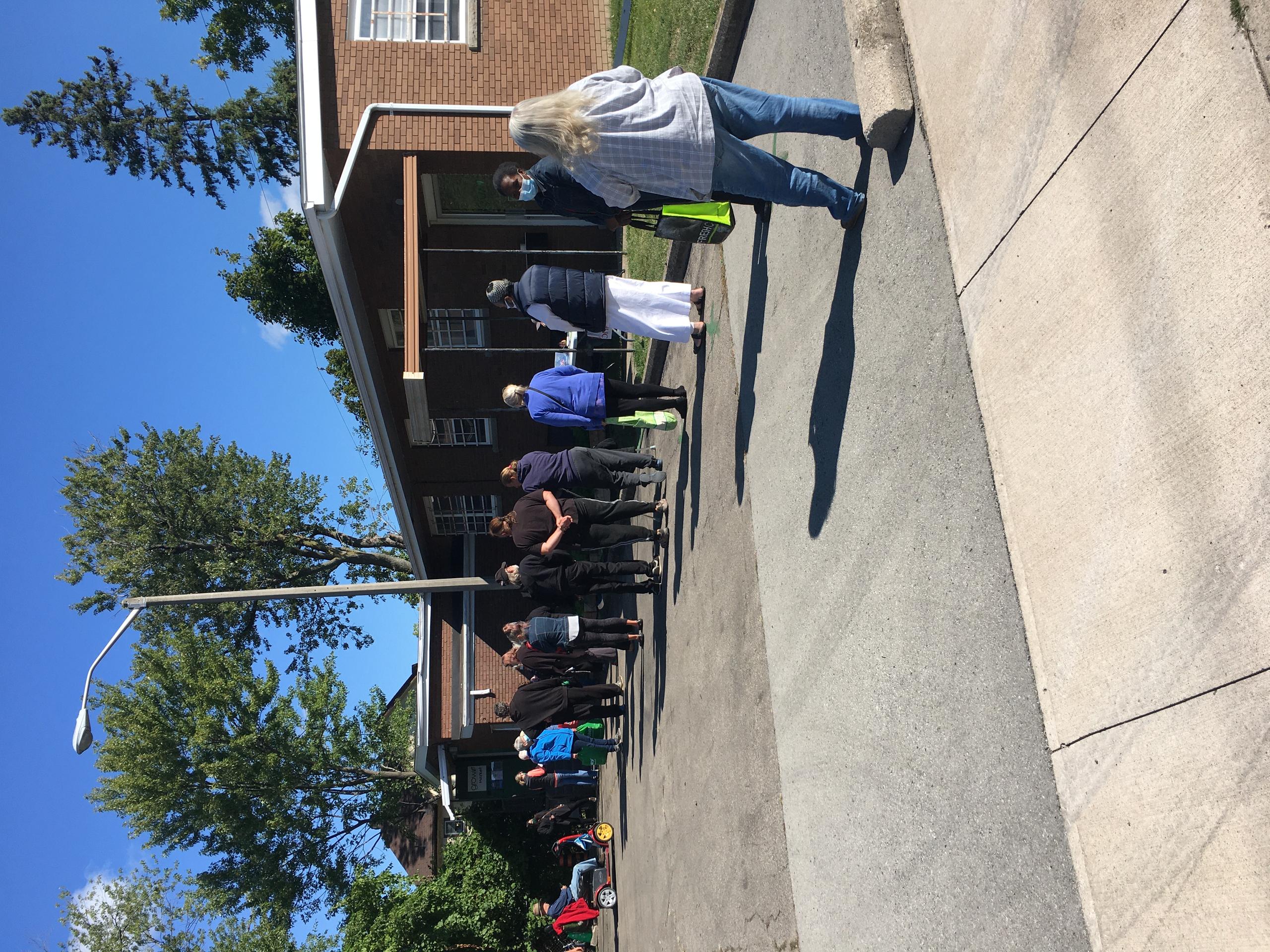
Swiss emigrant creates oasis in Canadian food desert

Last year, in the midst of the pandemic, Swiss expat Pamela Farrell set up a charity in her hometown near the Niagara Falls to provide access to healthy food for people in need. Now she wants to spread the word and promote her model across the country.
Pamela Farrell has an enduring childhood memory: waiting with her mother for the ‘Migros busExternal link’ – one of the buses with which the Swiss supermarket chain used to deliver food throughout the country, until it stopped the practice in 2007.
“The food came to us and we could buy fresh groceries,” Farrell tells SWI swissinfo.ch. This simple process, however, is something still unthinkable in large parts of Farrell’s current country, Canada. There, fresh, healthy and affordable food, available close to home, is often not an option.
Across North America, there are many so-called “food deserts” – areas where people have only limited access to nutritious and inexpensive food. According to one definition of the term, a food desert is a place where the closest supermarket is two kilometres away (for urban or suburban areas), and more than 15 kilometres away (for rural areas).

Such regions are often unattractive to large supermarket chains because the inhabitants generally have low incomes and limited mobility. And so they have access to food, but often only unhealthy, processed goods and convenience products. This is one reason for soaring obesity rates in the US and Canada.
“Paradoxically, these food deserts are often found in agricultural areas where there is actually no shortage of fresh food,” Farrell says. And so, she has begun fighting back through the finding of a community food literacy centre, “Grow”, which opened its doors in 2020.
“Pamela is making a big difference for poor people in the middle of the pandemic. She is an example to us all and an excellent ambassador for Switzerland,” says John Turner, who volunteers at Grow. Turner was so impressed by the commitment of this Swiss living abroad that he contacted SWI swissinfo.ch about it.
Blatant poverty

Farrell was born in 1977 in Zurich, where she also grew up. She has been living in Canada since 2001, and is approaching a watershed moment: “soon I’ll have been living here longer than in Switzerland,” says the 44-year-old. After 20 years in Canada, it’s thus hardly surprising that she prefers to talk to SWI swissinfo.ch in English.
After finishing business school in Switzerland, Farrell met her Canadian husband in London in the late 1990s. What started as a summer fling became serious and she moved to Toronto, Canada. There she worked for a Swiss employer and attended various university courses. “The more I learned, the more I realised how little I knew,” she says. She is now a teacher, lives near the Niagara Falls and is about to complete a doctorate degree in education.
Even after two decades overseas, Farrell is still struck by how much more visible poverty is in North America than in Switzerland. “In North America, welfare recipients are only entitled to a small monthly payment, usually just enough to pay the rent,” she says. “In Switzerland, social welfare is structured in such a way that you at least have a chance of pulling through.”
More
As a result, she says, people with low incomes in Canada can rarely afford healthy food. It is simply too expensive. The poor public transport network also makes it more difficult to get a job. “You won’t get far here without a car.” It’s a vicious circle.
No fresh food for miles
All this led Farrell to approach key people in her hometown of Niagara Falls with questions. What does the region need? How can we help the working poor, whose numbers have surged in the touristic region due to the Covid-19 pandemic?
The issue of food soon came up; Farrell lives in the middle of a food desert. “Within walking distance, there is a liquor store, a beer shop and three marijuana dispensaries, but nowhere to buy fresh food,” Turner says.
Unlike food banks, which mainly distribute canned and fast food to people in need, Farrell wanted to create an oasis that not only provided fresh food, but also helped strengthen the community.
She sees her commitment as strongly rooted in a desire for social justice. “As a teacher, I see the social inequalities that exist in our different schools and neighbourhoods on a daily basis.”
Queuing to shop
The idea of the food literacy centre fell on fertile ground. After much hard work and thanks to a large team of volunteers, Grow opened its doors in 2020. Farrell even received government grants and many donations for her project.

She now spends about 20 hours a week on the project – mainly when her children are in bed – and all on a voluntary basis. “Time management is one of my strengths,” she says. Turner confirms this: “Pamela is so well organized. She runs like a Swiss clock,” he says.
At Grow, people can buy food, attend cooking classes, and – when the pandemic allows – simply spend time together. On average, 150 shoppers come to Grow every day. “The line regularly stretches around the block,” says Turner. There is only one prerequisite in order to shop here. “You have to prove you have a low income,” Farrell adds.

“The fact that I grew up in Switzerland gives me the courage to push for change and to stand up for others,” says the Swiss emigrant, who adds that the project has “ambitious plans.” Eating, cooking and being together is just a start. With time, it should also help people become motivated to stand up for their rights and to get involved in politics and vote.
Grow’s founder also hopes to expand the scheme and set up more such centres in the region. “The key is to make our project attractive to other communities, and so to move away from emergency food programmes.” She is convinced she has found a sustainable and viable model to do this.
Translated from German by Julia Bassam

In compliance with the JTI standards
More: SWI swissinfo.ch certified by the Journalism Trust Initiative































Join the conversation!